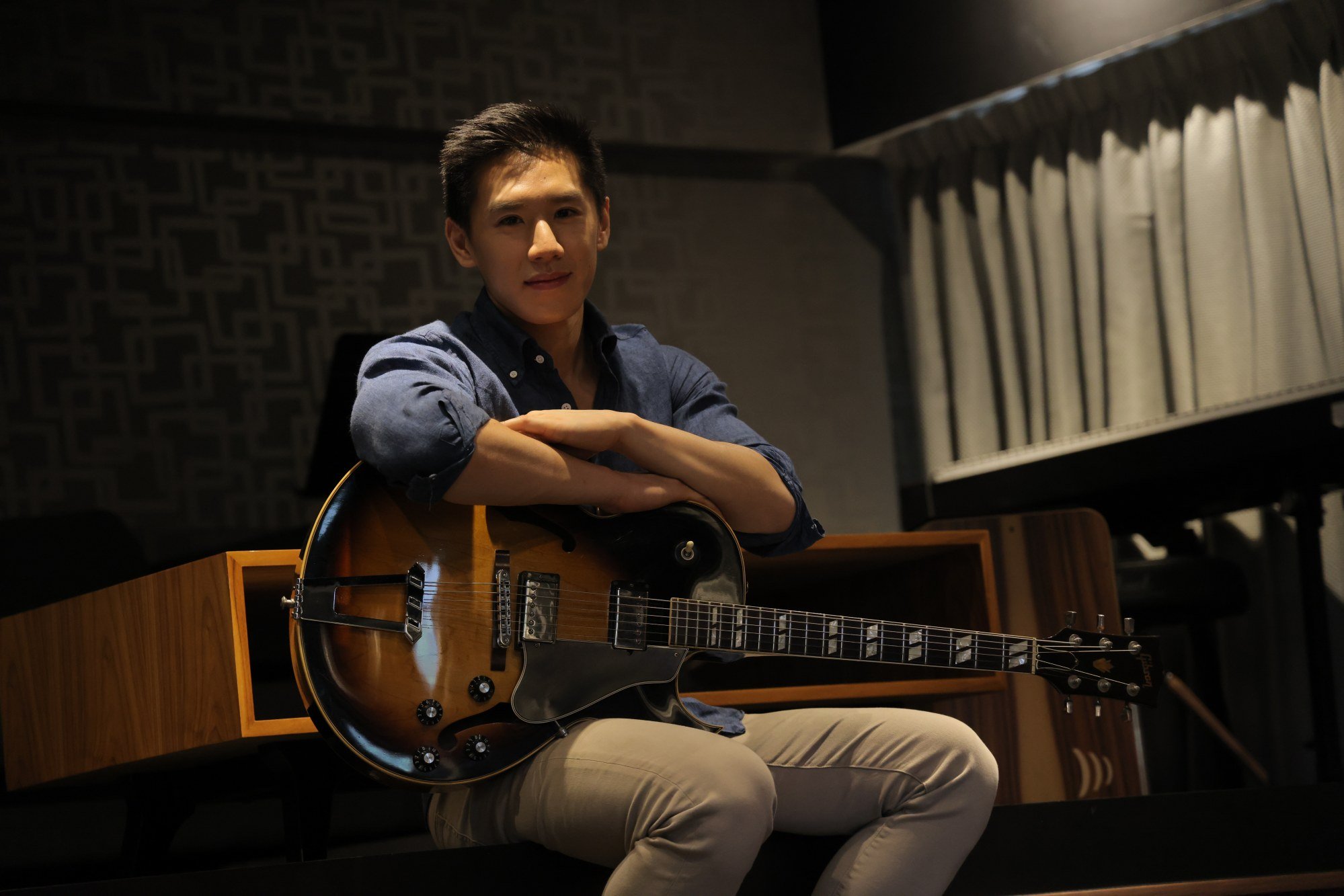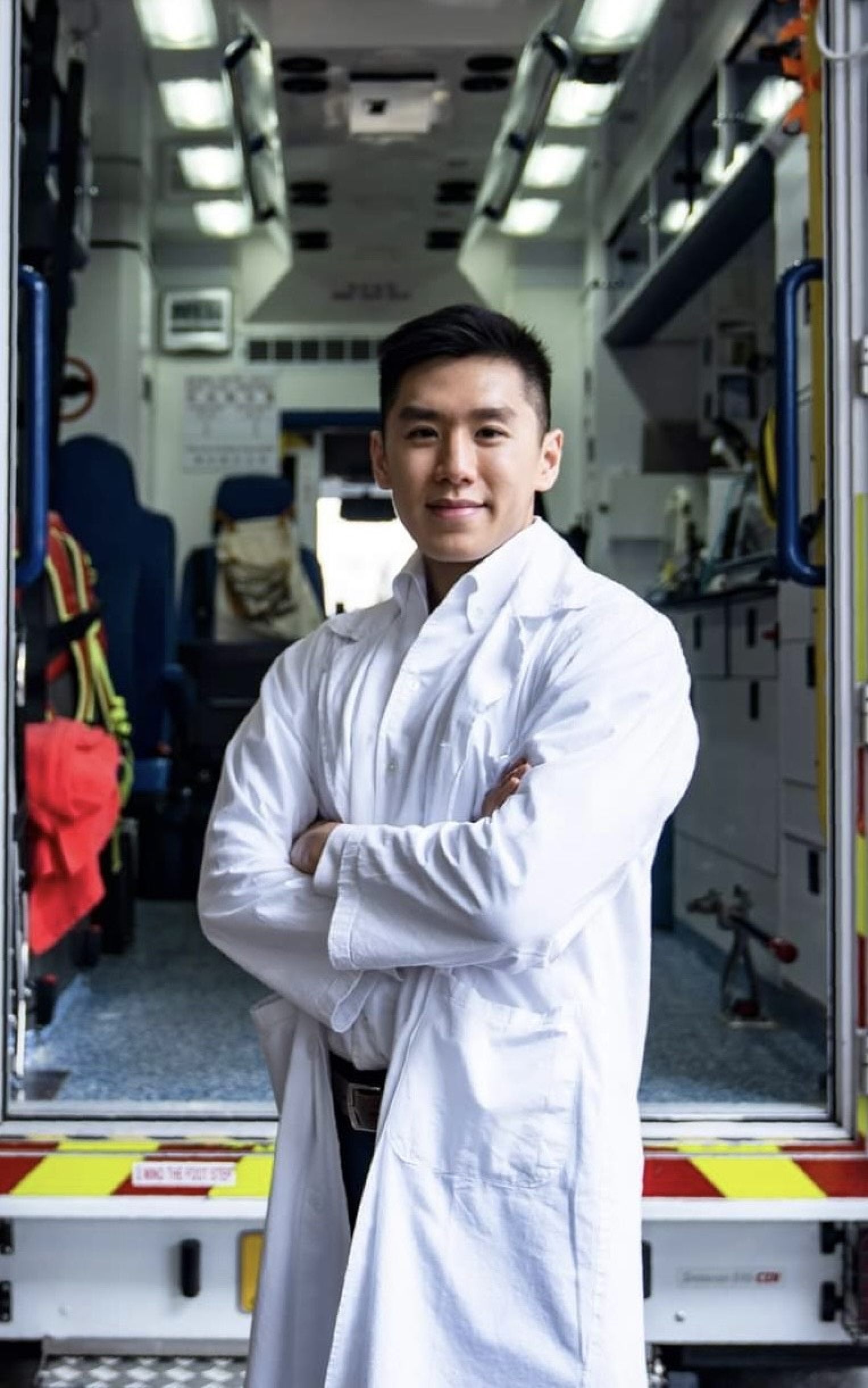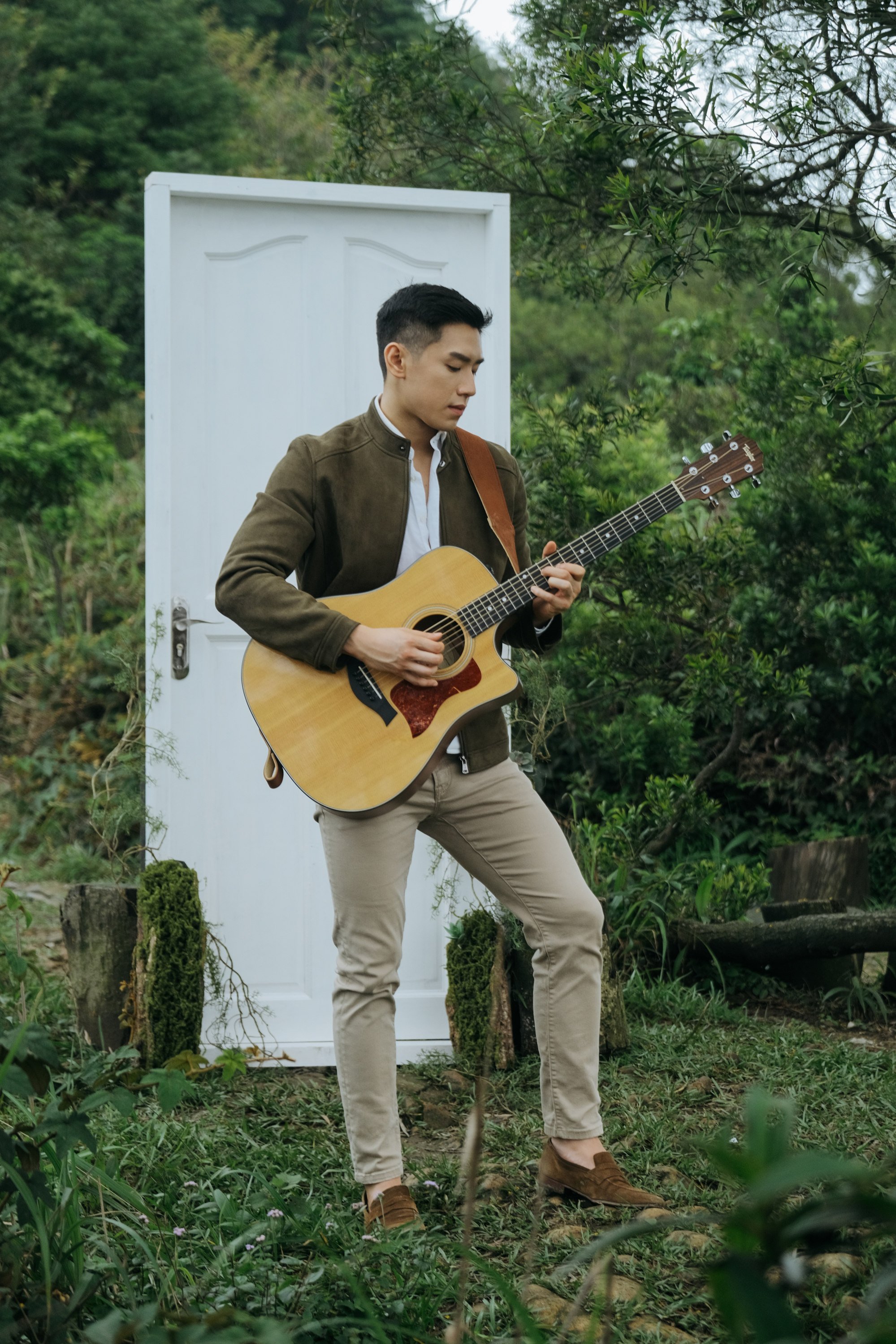After graduating from the University of Hong Kong’s medical school in 2018, 29-year-old Ryan Cheung Hoi-kit worked as a doctor until the beginning of this year.
“I decided to take a six-month sabbatical – it was the happiest I’d been for a long time,” says Cheung, who, after going back to work in July, quit in October to pursue his true passion: music.
He has played the guitar for 10 years now, but always considered it a creative outlet. It wasn’t until his six-month sabbatical that he really delved into it.
“Taking that break really, really helped me. I went on two big holidays and tried to record [songs] as much as possible. During those six months, I wrote a lot of music, put out two songs and played a lot of shows,” he says.
Healthcare was another reason he decided to take the leap into songwriting. Having witnessed how fleeting life can be, Cheung decided to seize his chance.
“I worked with critically ill people all the time. There are perfectly healthy-looking people whose lives can change in an instant, which made me realise that, with everything being so fragile, I might as well chase it now,” he says.
‘Chase our dreams’: drama classes help retirees, cancer fighter thrive
‘Chase our dreams’: drama classes help retirees, cancer fighter thrive
“I like to say that I’ve now become very selfish in terms of my own well-being.
“There are some very selfless people I’ve met who really inspire me, but for me, I have to be in quite an optimal mind state to care for my patients in the way they deserve to be cared for.”
Cheung, who grew up in Hong Kong, says his life has always been “a balancing act”. At school, as well as academia, he dabbled in sports and music. In 2015, he won the songwriting category in the University of Hong Kong’s singing competition.
Sometimes people ignore or aren’t aware of the physical toll of staying up all the time … maybe four or five times a month, and then having to work again the next day
Cheung says his demanding career meant he had to compromise.
At Cheung’s last job in public healthcare, it was common to work from 8am to 2pm or 3pm the next day, sometimes clocking up 30 hours for one on-call shift.

“It doesn’t benefit anybody. The most important people are the patients, and after a whole night of working and not having much sleep, I definitely am not thinking at my best or most clearly,” he says. “But the system hasn’t moved on.
“Sometimes people ignore or aren’t aware of the physical toll of staying up all the time – we’re talking about maybe four or five times a month, and then having to work again the next day. When you’re not thinking straight, that’s going to lead to mistakes. Ultimately, it’s the patients who suffer. It’s not great.”

He added: “At the height of the pandemic (in early 2022), I was working at the intensive care unit at Queen Elizabeth Hospital – I thought I’d be exhausted and depleted by the end of my stint at the ICU, but because the staff of the department were so supportive and devoted, I think I left the ICU feeling more inspired to continue working at the time.”
Cheung is grateful for the departments where he worked with colleagues who were all “very accommodating”. When he told them he was quitting to do music, they were “incredibly understanding” and “very empathetic and supportive”.
“I don’t think I’ve had any criticism. Perhaps it’s generational changes – [older] people these days understand that times have changed. People want different things.”
Some of his colleagues even encouraged him to try music full time while he is still relatively young, since medicine is a career that can last for decades. Others have suggested that he could work as a general practitioner for private clinics so he could have more flexibility.
“It seems there are more people opting to go private at an earlier age,” he says. “I think everyone is starting to feel the weight of [the work]. It’s tragic that the [public healthcare] system is burning a lot of people out.”

Cheung remains passionate about medicine and would still like to pursue it as a career. He considers it an immense privilege to have been able to go to medical school and do what he did.
“I think the only pressure has really come from myself – one of my issues was that I was very insecure about not having that career progression. In Hong Kong, people are very focused, and with doctors, there’s a very clear path that you want to take,” says Cheung.
However, he cannot imagine sacrificing everything else for the sake of being a doctor.
Cheung says he is still figuring out the path, but has lined up a part-time job, working four full days a week as a doctor “without having to do the on-calls”, and aims to put out a full-length album by the end of 2024.

